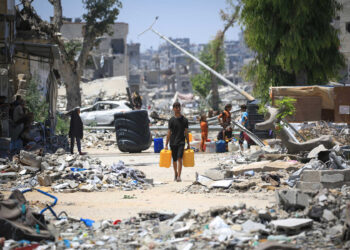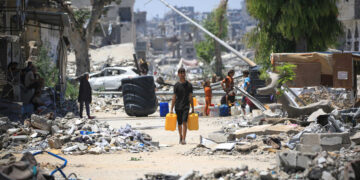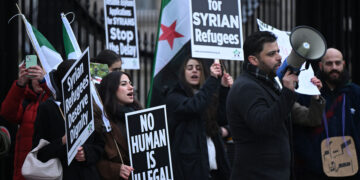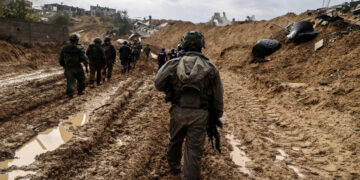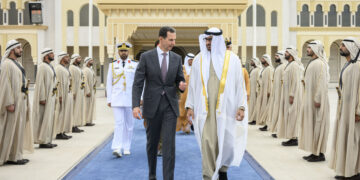Abdulrahman Barman is a Yemeni human rights lawyer and the executive director of the American Center for Justice.
Editor's note: This article is adapted from a paper presented at the Yemen D.C. Conference, which was convened in Washington by DAWN, the Tawakkol Karman Foundation and the Center for Contemporary Arab Studies at Georgetown University.
The deep scars of Yemen's civil war span all aspects of life in the country. The various parties to the conflict have perpetrated gross and widespread violations of human rights. If these violations are not addressed, the lack of accountability will undermine any nascent peace process and potential postwar transition. There is a dire need for comprehensive solutions that address these violations and combine the rules and principles of normative transitional justice with the local Yemeni reality.
Yemen has experienced many rounds of armed conflict going back decades, beginning with the North Yemen Civil War of the 1960s. With each war, civilians paid the heaviest price, and afterwards, the perpetrators of war crimes were never held accountable. Furthermore, investigations into war-time atrocities and violations of human rights have never been conducted in Yemen, nor have the victims ever been compensated or redressed for damages.
Leaving transitional justice to the parties involved in conflict in Yemen will only result in the institutionalization of impunity.
- Abdulrahman Barman
The issue of transitional justice was raised for the first time in Yemen's National Dialogue Conference of 2012-2013, which followed the peaceful revolution against the regime of late President Ali Abdullah Saleh, who held power for almost 34 years. However, a draft law on transitional justice was the subject of tension and controversy between rival political forces and was not approved. Instead, an immunity law was passed, which granted Saleh and his aides complete immunity from prosecution over the killing of protesters during the uprising against him.
This leads to an obvious conclusion in Yemen: leaving transitional justice to the parties involved in conflict will only result in the institutionalization of impunity.
As the decades-long history of political conflict in Yemen shows, any attempt at transitional justice and criminal accountability must include all parties, not just those in power or with an army or militia behind them. Fragile reconciliation efforts in the past have traditionally been imposed by the victorious party, which did not address ongoing grievances and only left the door open to renewed conflict. That is precisely what happened in frequent intervals from the 1970s and into the 1990s, following Yemen's reunification, especially given the failure to establish actual democratic institutions that could resolve the differences between the former regimes of North and South Yemen and create a space for civil competition between political parties.
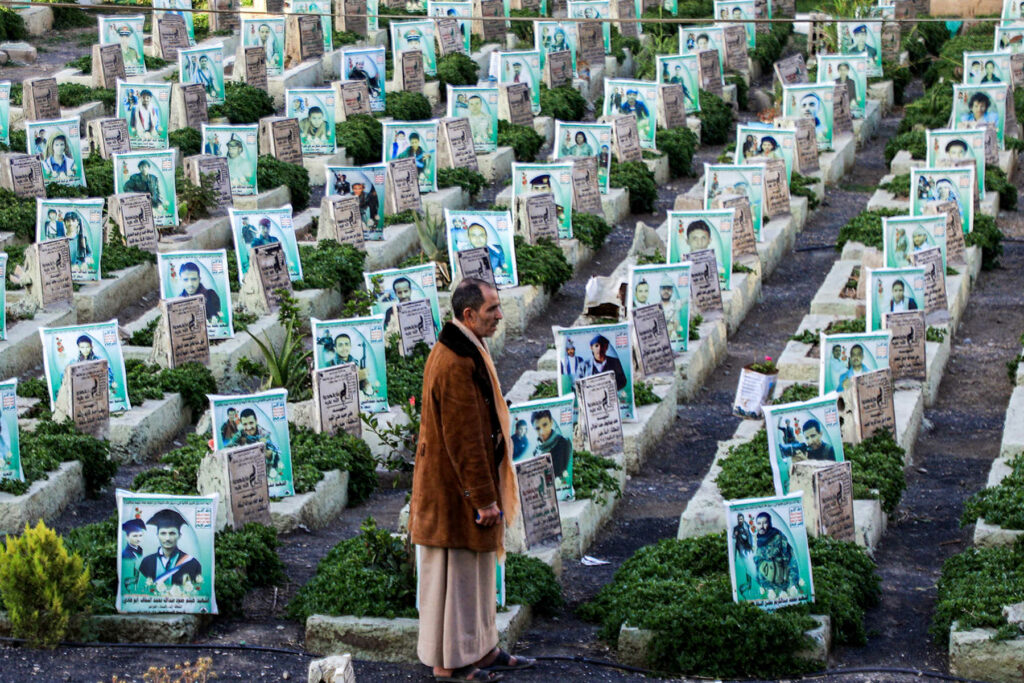
This resulted in different parties waiting for the opportunity to take political revenge and return to power by force of arms, rather than through democratic means. The September 2014 armed coup carried out by the Houthi group was just the latest example. By seizing control of Sanaa, the Houthis destroyed the hopes for democracy and reform that followed Yemen's popular uprising of 2011.
Now, after eight years of devastating war that created the largest humanitarian catastrophe in the modern era, according to the United Nations, there are both familiar and new obstacles to the prospects for peace, reconciliation and transitional justice in Yemen.
The war has produced many rival militias and armed groups with competing ideologies, operating according to foreign agendas and foreign funding. Despite the fragile truce sponsored by the United Nations last year and the ongoing talk of peace negotiations between all parties, the issues of accountability and the rights of the many victims of Yemen's war appear to be noticeably absent.
In other cases and countries, the application of transitional justice in accordance with international law has typically been implemented following the end of an armed conflict with a clear victory by one of the warring parties. However, in the Yemeni case, where all parties still maintain military capabilities, along with competing control of territory and resources, there is the unlikelihood of one party ever claiming victory, let alone "winning" Yemen's war. The idea of accountability and reconciliation as part of a negotiated settlement, therefore, seems even more remote.
Yemeni society is dominated by tribal customs and religious, moral obligations represented in forgiveness for bloodshed and the tradition of essentially turning a new page, mainly by apologizing for mistakes and acknowledging them. Such a tradition, in its essence, intersects with the moral and restorative aspect of transitional justice. So despite Yemen's history of conflict, and the nature of the war over the past eight years, there is a societal foundation for developing a model for transitional justice in the country. This was demonstrated through the National Dialogue Conference, which represented a unique Yemini model and might have led to a state of political and democratic stability if the Houthi coup had not taken place.
Any peace in Yemen that is not based on the foundations of human rights and accountability is only a temporary peace that will ultimately result in another return to war.
- Abdulrahman Barman
But pursuing transitional justice in Yemen also requires international will—by the United Nations and the countries sponsoring peace negotiations, such as the United States, the United Kingdom and the European Union. These same international actors must also stop foreign interference in Yemen, from Iran's support for the Houthis to the United Arab Emirates' support for rival parties, including the Southern Transitional Council, the Salafist Giants Brigades and forces under the command of Saleh's nephew, Tariq Saleh, known as the Yemeni National Resistance. Without any serious commitment from the many warring parties—and their foreign backers—toward the establishment of a free, democratic and civil state that enjoys full sovereignty over all of Yemen, there will no lasting peace. Instead, there will only be a flawed, patchwork peace process that leaves Yemen in pieces and lays the groundwork for new rounds of conflict.
Without serious international support for transitional justice in Yemen, all efforts that are currently being made to bring about peace will be undermined. Any peace in Yemen that is not based on the foundations of human rights and accountability is only a temporary peace that will ultimately result in another return to war.



















